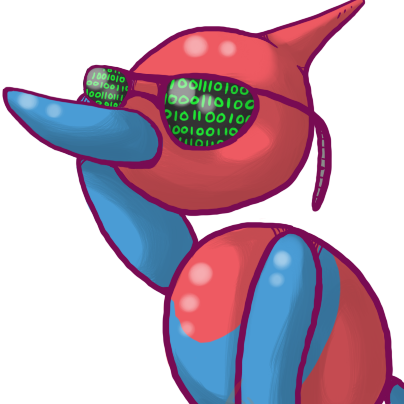Discord was already succumbing to enshitification. Now with their intention to be owned by Wall Street, that trajectory will certainly accelerate at warp speed once the change of hands happens.
Anyone already get ahead of this and find a solid alternative?
Right now I’m on the fence between Element for Matrix, and Revolt. Both seem to have their pros and cons and I can’t find a clear “winner”.
Honestly, I am ready to go straight back to TeamSpeak.
I miss hosting my own server and having full access and control over it
I used to just host it on a piece of shit. 2003 Dell XP machine I put Ubuntu on
it’s Element/Matrix if we’re lucky. Revolt is just another Discord - surely this single company will last! With Element/Matrix being an open protocol, it won’t be a “platform” you have to leave when it goes corporate.
Sadly I found out yesterday:
Matrix is not a community-based software, it was born [00] in Amdocs [01], a multinational corporation founded in Israel.
https://hackea.org/notas/matrix.html
Many were claiming its impossible to get contributions merged as well.
I would be happy to find out this information is wrong or outdated.
If you’re self hosting, it’s Revolt. But the default instance limits you to 20mb or something for files, which is a problem for me, personally.
Revolt is also an annoyance to self host and the apps don’t support self hosted instances without you rebuilding them because the server is hardcoded.
Way too few mentions of Jitsi.
I use it with friends, it has good server config, and I’m pushing it on businesses.
Explain more of this Jitsi, sounds interesting for my business
It’s voice and video calling with chat and screensharing. I intend to use it for a language school. It’s extendable, for instance you can also self-host a whiteboard, where everyone can draw. You can see the drawing in real time, which is good for asian languages, where direction of the stroke is important.
Free, open-source, packaged in Debian, runs without issues, used it with friends for multi-hour voice chats during gaming nights.
On the server you can configure things like FPS for screenshare. I have yet to adjust that and try streaming video/game through it.
This does sound extremely useful and good.
I’d say the only issues software like this have is there’s a lack of beginners guides to self hosting, so people either know too little and instantly have their server botted / hacked, or know enough to be too paranoid and afraid to set up their own server because they know of the risks.
As for me though, I’ll probably look into implementing this and play around with it for our DnD group first.
they are owned by a Nasdaq-listed company. does that not the defeat the purpose when OP is trying to avoid Wall Street-ownership?
Discord is a completely proprietary walled-garden that bans third-party clients to maintain full control AND (soon) has Wall-Street-ownership.
Jitsi is open-source built with multiple open protocols BUT has Wall-Street-ownership.
Neither is great, but these are two distinctly different situations.
Honest question, but on a technical level isn’t discord basically IRC with some bells, whistles, emojis, and a some WebRTC Logic wrapped in electron with a large marketing budget? Throw in some cloud storage and a CDN for images. What am I missing? I’m not saying it’s “easy”, but I’m curious what it would take to build a solid streamlined FOSS alternative built on combining existing technologies.
Edit: I’m not familiar with the ecosystem… is the issue with existing FOSS bad UI and complicated onboarding? Missing features? Or is it simply a critical mass issue?
Discord is not even necessarily Electron. I’m running it as Datcord, which is a Firefox based wrapper.
Discord has a searchble chat history, which is what sets it apart from IRC. Everything else can be emulated by modern IRC clients, such as emoji and embedded / unfurling images and link previews.
However imagine the chat history as if you had a bouncer that has 100% uptime and joined all possible chat channels from their creation, along with offering you search and buffer.
If not IRC, either Matrix or XMPP should be capable of this.
I’m fairly sure Discord’s popularity was due to aggressive marketing, likely during their venture capital funding rounds. Something which FOSS does not have.
An alternative would need screen share, just voip is not enough any more.
The problem is that performant screenshare (to multiple users) more or less requires infrastructure. That requires money, and it’s impossible to compete on price with services that have the VC-enshitification model.
You can get around this in a few ways, but they’re all tradeoffs that are in some way or other worse than discord.
- P2P - sacrifice latency, reliability
- direct multi-stream - sacrifice PC performance and/or bitrate
- paid infrastructure - sacrifice money
I think P2P is still the way to go. Sure it’s not perfect, but it’s simpler and by it’s very nature doesn’t require the infrastructure we know will be a problem.
Plus, don’t forget screen sharing in discord isn’t very good as is (720p30) if you’re not a paid user.
What if you had OBS create a “camera” of your screen, and then use that through video chat?
Ah, the good old “screenshare not working on wayland” workaround!
man I wish mumble had a better interface and a chat function, it could real FOSS competition with Discord, but the lack of a chat feature is holding it back
It’s so much easier to set up and install than Matrix.
It’s so much easier to set up and install than Matrix.
Unbelievably so. Mumble is… basically one setup command. Don’t even need a domain. And it needs absolutely no resources, can run on a Pi Zero.
Setting up my own Matrix server was honestly one of the most difficult things I’ve ever attempted in decades of non-professionally using computers and I’m still not sure I’d be able to properly take care of the installation if it breaks. Sooo many moving parts. All the federation-oriented projects that rely on adoption rates reaaaaally desperately need setup wizards before any other additional feature.I’ve set up Lemmy, Forgejo, Nextcloud and Mastodon. Forgejo is unbelievably easy, Mastodon and Lemmy both are complex but if you follow the instructions you get there pretty quickly.
Matrix is like “Follow a book of documentation, then when it doesn’t work anyway, spend hours of your life troubleshooting a bunch of stuff that’s NOT in the documentation. Why is this so hard?”
You forgetting the part where the server starts using crazy resources because you entered the main Matrix chat. Does the server need to send you everything that’s ever been said? Apparently yes
Sounds like this is part of their business plan. Make hosting it so onerous, you’re better-off using their servers, or paying them to do it for you.









